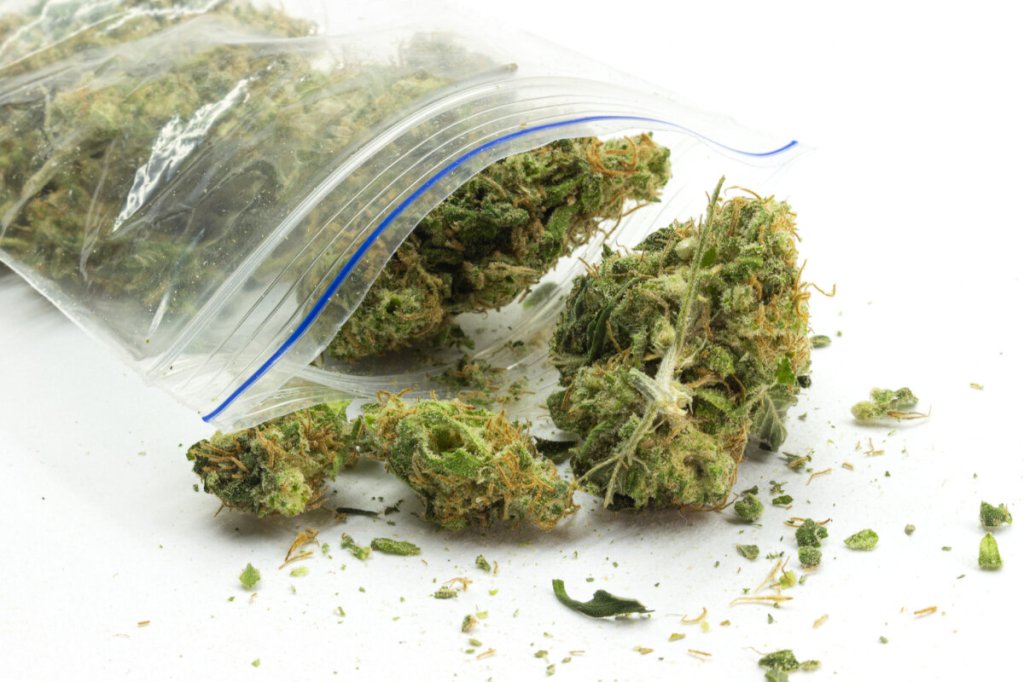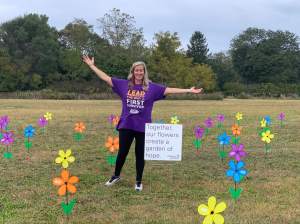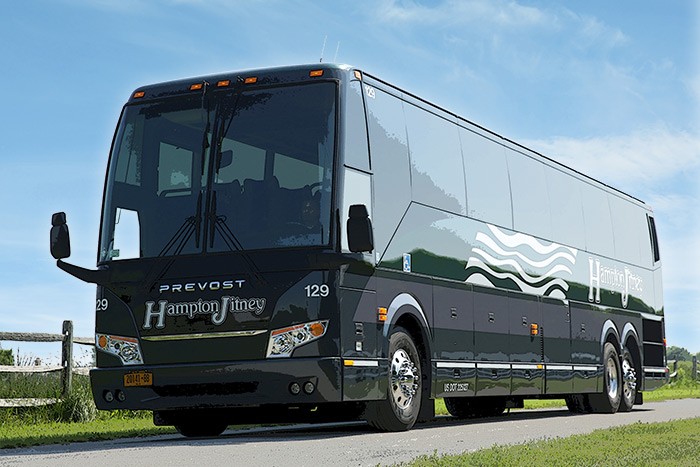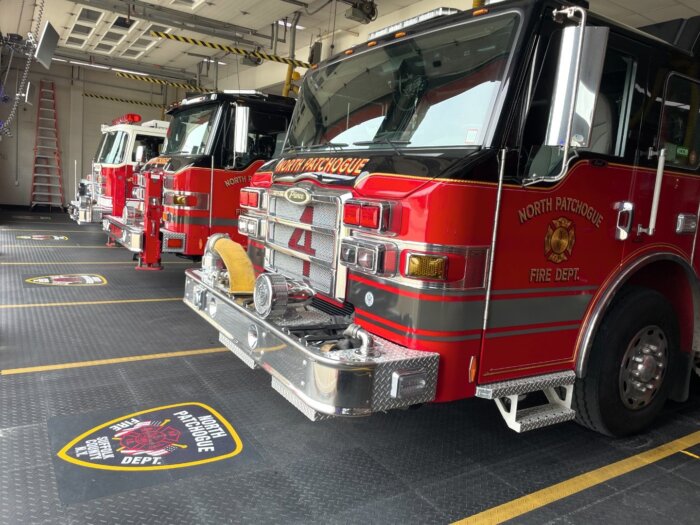David Tubens, a chiropractor, decided to go into the cannabis business when there was a virtual gold rush. He sold his practice, was granted a license to launch Planet Nugg, and set up shop in Farmingdale that included a 5,000-square-foot dispensary and a 2,500-square-foot consumption lounge.
Then a judge issued an injunction putting unopened stores on hold, thrusting his and many other budding cannabis businesses into a long limbo that many hope will soon be over.
“We’re in a holding pattern. I spent hundreds of thousands of dollars on renovations,” Tubens said. “I’m paying rent and taxes. Right now I’m at a standstill.”
New York State’s and Long Island’s cannabis industries are clearly poised to take off, but the gold rush, for many, remains on pause. Only one dispensary, Strain Stars, was approved and opened on Long Island in Farmingdale. Only 23 opened statewide, including 18 brick-and-mortar and five that operate only by delivery.
“Everybody else who has licenses and locations is shut down,” Tubens said at an Oct. 4 meeting of the Long Island Cannabis Coalition (LICC), an advocacy group, at La Refuge in Melville with more than 100 people in attendance.
Paul Lepore, owner of the Happy Days dispensary, has been paying rent since 2022, but also has not been able to open, although he and the state are hoping for an exemption.
“We keep pushing forward,” he said, noting he has a CAURD (Conditional Adult-Use Retail Dispensary) license. “The state has to represent us. Hopefully they can get us through the injunction.”
Licensed To Sell Cannabis
The coalition met the day the state began general licensing, including five categories of Cannabis businesses, for a 60-day window.
“I think there’s a stigma around cannabis in general because we had cannabis prohibition where communities were targeted,” Jason Salmon, the New York State Office of Cannabis Management director of external affairs, said at the event.
He said that the state wiped out 400,000 cannabis convictions as it sought to legalize the substance, but nearly 90 percent of Long Island opted out of approving stores and other cannabis venues. Municipalities can take various paths to opt in.
“If you do it through referendum, it’s long,” Salmon said. “All the people have to vote for it within that town. The other way is for the local body in that town to pass a law that reverses opt out.”
He said that OCM is working with faith-based leaders “who have a lot of control within the community,” talking with government officials, and organizing a 15-stop tour of community meetings, which started in Harlem on Oct. 10.
“I don’t necessarily think it’s all about zoning,” Salmon added, referring to another issue. “There’s a lot of stigma around cannabis.”
The Opt-In Opportunity
Coalition President Gahrey Ovalle said that initially many municipalities were concerned about the unknown, but dispensaries in New York and nationwide provide a track record.
“We just didn’t know what it was going to look like in our communities. Fast forward to today. We have real information,” Ovalle continued. “We know the effect of cannabis dispensaries in our community. They’re tremendously profitable. They are not trouble.”
He said a “business-oriented and -minded community” is pushing for the right to open legal stores, which could help shut down illegal shops that may provide impure products or serve minors.
“Long Island has a tremendous cannabis appetite,” Ovalle said. “Long Island needs more conversation. That’s what brings us to this conversation today.”
New York State passed the Marijuana Regulation and Taxation Act on March 31 of 2021, although it was still a Schedule 1 federal drug. MRTA created the Office of Cannabis Management whose functions include licensing cannabis businesses.
“We are still not fully staffed. We should probably be at 300 people. We’re at the high hundreds now,” Salmon said. “A lot of work we do is spread out among a small amount of people. It’s harder than it looks.”
Where We Stand
The state has licensed 273 cultivators, 463 justice involved retailers or CAURD licensees (people convicted of marijuana offenses), 40 processors and 10 not-for-profit retailers, but only 23 stores are actually operating.
“Not too impressive, but we’re working on it. We need to increase that number tenfold. That’s why in this region we need to get towns to reverse their opt outs,” Salmon said. “We don’t have anywhere to put you all right now. That’s the impetus for this event.”
OCM and the Cannabis Control Board has issued 13 cultivation licenses, 63 retail dispensaries licenses, and three processors licenses on Long Island. “The supply chain is here,” Salmon said. “You don’t need to leave Long Island to do business.”
Ovalle said demand and desire are there, but that companies need to be able to do business, matching locations and the right to open with licenses.
“It’s really just accessibility,” Ovalle said. “We need more space. Currently, Babylon’s the only town that’s allowing us to legitimately open up dispensaries. Other towns have opted in. But we have yet to be successful in opening a dispensary.”
Babylon, Brookhaven, Riverhead and Southampton opted in, providing access to some money from cannabis taxes, while no Nassau municipality has. Ovalle said there is a “clear disconnect between the municipalities on Long Island and their leadership and the wants of their constituents.”
“In some communities up to 70% want access to legally regulated cannabis,” Ovalle added. “With legal cannabis entering a community, there is no accessibility by children and all products are vetted and tested.”
A Business Is Born
While many people think of marijuana as a diversion, those in the cannabis industry, including many at the LICC event, are serious, professional and, once opened, profitable.
“We’re getting more customers per day, more word of mouth,” Strain Stars CEO Yuvraj Singh said over the phone.” Deliveries are starting to pick up as well.”
Others describe a budding business from packaging to product that is far from images of pot pre-legalization.
“This is a real business. This is very sophisticated,” said Dave Vautrin, owner of the Union Square Travel Agency, a sleek Manhattan dispensary that looks like an Apple store. “We run it like any other business with full analytics. This is just a normal business. We all need to embrace that.”
Ovalle described Vautrin’s store as a sophisticated retail location. “The store is stunning,” he said. “Classy cannabis is what we’re trying to bring to the conversation. And it’s here.”
Vautrin, whose store employs nearly 100, said they seek to service different customers, such as the cannabis-curious wellness seeker, fun-seeker, cannabis enthusiast, connoisseur, value seeker, and medicinal user.
“We look at consumers in different buckets with different persona,” Vautrin added. “Every single person who comes into our store has a persona.”
He pointed to ancillary industries that have been impacted including packaging, labeling, cultivation, testing labs, compliance, security, consulting, and public relations. “There are dozens,” Vautrin said. “We’re adding jobs, tax dollars.”
All About Access
Advocates of wider availability through legal, regulated dispensaries say cannabis is already available, but through illegal means is not regulated, taxed or with other oversight.
“It’s brand new. It’s up and coming,” Tubens said. “In light of the illicit drug market and Fentanyl, if people are going to do it, get it from a safe place.”
Dispensary operators say they believe in both their mission and their business as ways to provide a service and turn a profit.
“I wanted to make sure with Strain Stars we could have an impact with the medical community and the recreational community,” Strain Stars co-owner Tushar Mallick, who has multiple sclerosis, said.
OCM launched a Why Buy Legal New York Campaign and a dispensary verification tool in the form of aNew York State-licensed cannabis dispensary sticker. “If it does not have this sticker visible, we have not licensed this operation,” Salmon said.
From January to August 20, the total New York State sales were $66 million. Long Island’s one open store has served approximately 1,100 customers a day.
“Long Island is a tourism hub. Right now you’ve got wine country,” Salmon said. “I think we can have cannabis country.”
He said the OCM decided it “needs to spend more resources on Long Island,” where nearly 90 percent of the region has opted out. “That’s a lot of lost tax revenue,” Salmon said.
The stigma around cannabis continues, but people say they want to speak up and stop keeping secrets. “We smoke weed and we want to be able to talk about it,” said one woman at the LIDD meeting, who identified herself as a soccer mom.
Others at the event said New York State provides rigorous product testing.
“Everything we sell in our store has to be approved by New York State,” Tubens said, noting that they sell only products approved by the Office of Cannabis Management.
Others in attendance said that working together is the only way to make change and help the cannabis business truly bloom.
“I’m putting a lot of time into making things happen, because I believe in it,” LICC Vice President Hugo Rivas said. “I believe in the cannabis industry, helping others and helping each other. That’s the only way we will succeed.”




























